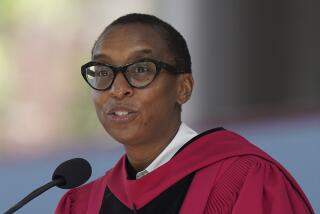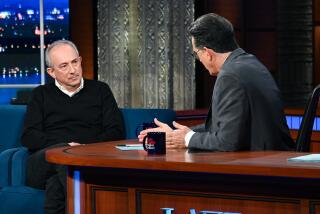Plagiarism
- Share via
Plagiarism (editorial, Feb. 20) did not become an issue until Columbus “discovered” America and Europe invented private property. Prior to that, scholars all copied from the same source--the revealed word of God. Only when money, fame and power became incentives did priority squabbles (like that between Newton and Leibniz over calculus) take place.
Handel didn’t mind if someone else used one of his fugues; Shakespeare borrowed (or stole) whole plots from Cinthio and Holinshed. Literary theft was impossible until late Renaissance politics put fences around the mind.
So the real culprits aren’t Martin Luther King Jr. and Bruno Bettelheim, but those who want to hoard ideas rather than share them, or to profit from patents instead of making them public domain. Many historians have noted this, so I won’t claim originality for my remarks.
As Professor Ecclesiastes told me, “All is vanity . . . nothing is new under the sun, except for the footnotes and bibliography.” Then he closed his thesaurus and called his lawyer.
DENNIS ROHATYN
Professor of Philosophy
University of San Diego
More to Read
Sign up for our Book Club newsletter
Get the latest news, events and more from the Los Angeles Times Book Club, and help us get L.A. reading and talking.
You may occasionally receive promotional content from the Los Angeles Times.








